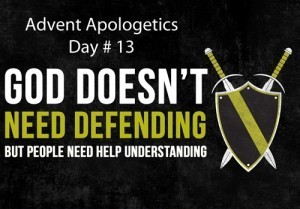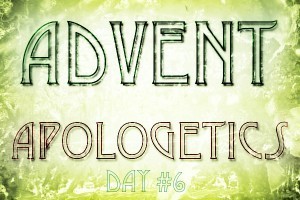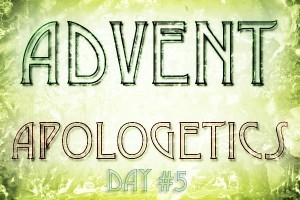Miguel Labrador's Blog, page 4
December 16, 2013
To Hell With Integrity?
 Today’s Guest Blog Post by: Claudia Labrador
Today’s Guest Blog Post by: Claudia Labrador
I am not a famous blogger. In fact, I am nobody, really. But I have a bone to pick with famous bloggers who make their living being controversial at the expense of hurting others, and then making light of it by hiding behind all of the comments from friends and followers who support that kind of rude, crude behavior, because…well, after all, it’s SO AND SO, and they have a good heart, and they are famous! These bloggers write about injustices while casually spouting injustices without recognizing the irony in their own actions through words, yet cry “mean” and “unfair” when anyone stands to reject and admonish the behavior.
My rant about this isn’t a plank calling out someone else’s speck in the eye. It’s a call to integrity that is shrinking in the world of Christian bloggers and people who make their living by selling books and conference appearances to speak on things like biblical justice while making casual, hurtful remarks whenever the mood strikes; a call to “put your mouth where the money is” and practice what you preach! After all, you earn by preaching it, no? But the reality we are faced with is a conundrum. A popular blogger doesn’t have to be careful or considerate anymore, because what’s losing a few fans when I have thousands!?
Maybe it’s a bad day. The kids are screaming. The phone won’t stop ringing. The remodel is a mess and taking longer than expected…and it’s the stressful Christmas Season after all! I can find an excuse for bad behavior anytime I want by simply stating I am a “work in progress”, right? Isn’t that the spiel that most Christians give to excuse themselves? Most certainly we are all human, and we make mistakes. But is it really a mistake to carelessly toss a descriptor like “White Trash” around, for any reason, if after all my primary ministry focus and means of financial gain is that in the realm of speaking and writing on biblical justice? Or is it just in poor taste? Callous, even?
What motivates us to do the right thing if the cheering is louder for when we spike the controversy? Controversy sells! If Christian bloggers can make money at the expense of making fun of others, then biblical justice can soon become a comfortable afterthought. Integrity can go to Hell!
(Visited 122 times, 5 visits today)














CommentsI have observed and am occasionally guilty myself of such ... by Kirk StephensI loved this! Well said with skillful use of language. by Lindy CombsWay to go, Claudia! Bring the heat! by Morgan BushProps, Claudia. by gibbyRelated StoriesAdvent Apologetics Day #3 – Helpless Doesn’t Mean HopelessAdvent Apologetics Day #7 – The Samaritan ApproachAdvent Apologetics Day #5 – It’s Humane
December 13, 2013
Advent Apologetics Day #13 – Noble Argumentation?
 An Advent Apologetic is one that is not quarrelsome but kind, able to teach, and patiently endures evil. (2 Timothy 2:24) It has nothing to do with foolish, ignorant controversies; or purposefully creating environments for contention. (2 Timothy 2:23) It’s one that does not lean towards grumbling or disruption. (Philippians 2:14) It’s soft in response and does not feed anger. (Proverbs 15:1) It is not vengeful. (Romans 12:19) It submits to those in authority, is obedient, disposed to do good, speaks evil of no one, maintains gentleness, and practices common courtesies. (Titus 3:1-2) It pursues peace and the building up of others. (Romans 14:19) It is patient and kind, does not envy or boast, is not arrogant or rude, doesn’t insist on its own way, and is not irritable or resentful. (1 Corinthians 1:1-3) It doesn’t contend without fruitful purpose. (Proverbs 3:30) It lives, breathes, and moves according to its calling. (1 Peter 2:21) It is pure, peaceable, open to reason, full of mercy, and impartial and sincere. (James 3:17) It acts according to its nature. (James 3:9-12) It’s timely. (Proverbs 23:9) It is enfleshed in continued faithfulness.
An Advent Apologetic is one that is not quarrelsome but kind, able to teach, and patiently endures evil. (2 Timothy 2:24) It has nothing to do with foolish, ignorant controversies; or purposefully creating environments for contention. (2 Timothy 2:23) It’s one that does not lean towards grumbling or disruption. (Philippians 2:14) It’s soft in response and does not feed anger. (Proverbs 15:1) It is not vengeful. (Romans 12:19) It submits to those in authority, is obedient, disposed to do good, speaks evil of no one, maintains gentleness, and practices common courtesies. (Titus 3:1-2) It pursues peace and the building up of others. (Romans 14:19) It is patient and kind, does not envy or boast, is not arrogant or rude, doesn’t insist on its own way, and is not irritable or resentful. (1 Corinthians 1:1-3) It doesn’t contend without fruitful purpose. (Proverbs 3:30) It lives, breathes, and moves according to its calling. (1 Peter 2:21) It is pure, peaceable, open to reason, full of mercy, and impartial and sincere. (James 3:17) It acts according to its nature. (James 3:9-12) It’s timely. (Proverbs 23:9) It is enfleshed in continued faithfulness.
I know the above paragraph is filled with subjective terms. At the accusation of being “arrogant,” or “unkind,” or “discourteous,” or even “argumentative,” I’ve often responded with the questions like, “How am I being arrogant?” or even “Show me where the sin is in what I’m saying.” While intellectually defensible, this attitude tends towards esteeming oneself higher than others. The exact opposite of what an Advent Apologetic is.
Many, including myself have justified argumentation as noble when used to “defend the faith.” One question:
Are there any texts in scripture which justify being argumentative?
(Visited 10 times, 1 visits today)














CommentsAs ministering angels one to another, these apply 1Tim. 5:1-2, ... by Kirk Stephensyes, as you write, “subjective” (especially in English). ... by MarshallRelated StoriesAdvent Apologetics Day #10 – Unable to CopeAdvent Apologetics Day #7 – The Samaritan ApproachAdvent Apologetics Day#12 – It’s about Helping
December 12, 2013
Advent Apologetics Day#12 – It’s about Helping
 “When we do the work of apologetics we do it as disciples of Jesus, and therefore in the manner in which he would do it. This means, first of all, that we do it to help people, and especially those who want to be helped. Apologetics is a helping ministry.” ~ Dallas Willard
“When we do the work of apologetics we do it as disciples of Jesus, and therefore in the manner in which he would do it. This means, first of all, that we do it to help people, and especially those who want to be helped. Apologetics is a helping ministry.” ~ Dallas Willard
An Advent Apologetic is:
An apologetic that helps attract people to the faith.
About helping people overcome barriers to faith.
A willingness to work with God in helping people discover and turn to his glory.
About helping the gospel gain a foothold in your contexts.
About helping people to find and enter doors they may never have known about.
About helping people navigate new territories.
“Training the body helps a little, but godly living helps in every way. Godly living has the promise of life now and in the world to come.” 1 Timothy 4:8 (God’s Word Translation)
How are you helping people through your apologetics?
During Advent, Pathways International will be supplying food to the poorest of the poor in the Cloud Forest Region of Ecuador. You can help by visiting this link.
(Visited 3 times, 1 visits today)













 Related StoriesAdvent Apologetics Day #10 – Unable to CopeAdvent Apologetics Day #8 – It’s the Question That Drives UsAdvent Apologetics Day #7 – The Samaritan Approach
Related StoriesAdvent Apologetics Day #10 – Unable to CopeAdvent Apologetics Day #8 – It’s the Question That Drives UsAdvent Apologetics Day #7 – The Samaritan Approach
December 11, 2013
Advent Apologetics Day #11 – Is It Suppose To Hurt?
 Modern apologetics spends more time defending the historic Christian faith than demonstrating hope in the present or expressing a future confidence.
Modern apologetics spends more time defending the historic Christian faith than demonstrating hope in the present or expressing a future confidence.
An advent apologetic sometimes needs to ask “Where does it hurt?”
A well reasoned logic, an attempt to rationalize the pain of others, or defense of the tenets of one’s faith, does little to acknowledge or alleviate the hurt. In fact, much of modern-day apologetics causes unnecessary and untimely hurt. It’s often glossed over by the kurt and insensitive philosophy “The Truth Hurts.” It can be devastatingly deceptive to tell a truth at the wrong time. The truth, spoken at the wrong time or in the wrong context becomes like a manipulative lie.
C.S. Lewis once said, “We accept the claims of Christ because they make sense and then abandon them when a painful or confusing situation causes us to be overcome by feelings of fear or guilt.”
Struggle in apologetics is often thought of as the frustration or inability to convince the other party of their error. These thoughts and others like it are shameful. An Advent Apologetic, is one that is familiar with real struggle and is willing to join others in it.
Most of us, if we’ll admit it, do not trust God in times of struggle because we really don’t trust God when things are going well. We develop our faith arguments to cover up our own frailty and then foist them on others to make ourselves feel better.
Apologetics is about hope, and not hoping you’ll be able to win arguments. Advent Apologetics is benevolent. But again, as C.S. Lewis has said, ““Everyone feels benevolent if nothing happens to be annoying him at the moment.”
An Advent Apologetic based in love is not rude, does not irritate, and does not portray resentfulness. 1 Corinthians 13:5
Our Advent Apologetics, in part, is about feeding the poor, a demonstrable hope.
You can participate. Visit this link for details.
(Visited 2 times, 2 visits today)













 Related StoriesAdvent Apologetics Day #10 – Unable to CopeAdvent Apologetics Day #7 – The Samaritan ApproachAvent Apologetics Day #9 – Changing Minds?
Related StoriesAdvent Apologetics Day #10 – Unable to CopeAdvent Apologetics Day #7 – The Samaritan ApproachAvent Apologetics Day #9 – Changing Minds?
December 10, 2013
Advent Apologetics Day #10 – Unable to Cope
 Some would think Advent an Apologetics at odds with each other. Advent actions are often described with words like patience, waiting, and hope. Apologetics is often associated with abrasiveness, pompous posturing, and hate. But, what if we adopted an attitude of Advent in our apologetics all the time? For the past 9 days I’ve connected Advent and Apologetics under these sub-headings;
Some would think Advent an Apologetics at odds with each other. Advent actions are often described with words like patience, waiting, and hope. Apologetics is often associated with abrasiveness, pompous posturing, and hate. But, what if we adopted an attitude of Advent in our apologetics all the time? For the past 9 days I’ve connected Advent and Apologetics under these sub-headings;
Living and Searching Together.
Helpless Doesn’t Mean Hopeless
It’s The Question That Drives Us
and
In leading to 1 Peter 3:15, the most commonly used apologetics text, we’re looking at some other texts. Todays text is Acts 6:8-10
“And Stephen, full of grace and power, was performing great wonders and signs among the people. But some men from what was called the Synagogue of the Freedmen, including both Cyrenians and Alexandrians, and some from Cilicia and Asia, rose up and argued with Stephen. But they were unable to cope with the wisdom and the Spirit with which he was speaking.”
Of particular interest is the last sentence, “But they were unable to cope with the wisdom and the Spirit with which he was speaking.” Often, apologetics is centered on intellectual prowess or keen debating skills. It is also primarily focused on the spoken word. Steven’s apologetic contained three critical components; action or deeds, being present amongst others, and wise and spiritually guided speech. Advent Apologetics includes these three.
Thomas a Kempis once said;
“For truly it is not deep words that makes one holy and upright; it is a good life which makes one dear to God. I had rather feel contrition than be skilful in the definition of it. If you know the whole Bible, and the sayings of all the philosophers, what should this profit you without the love and grace of God?”
Celebrate Advent by feeding a family over the Holiday Season. Click here for more details.
(Visited 9 times, 9 visits today)














CommentsHomerun, thanks:) Titus 3:9 by Kirk StephensRelated StoriesAvent Apologetics Day #9 – Changing Minds?Advent Apologetics Day #7 – The Samaritan ApproachAdvent Apologetics Day #3 – Helpless Doesn’t Mean Hopeless
December 9, 2013
Avent Apologetics Day #9 – Changing Minds?
 If repentance = “Changing one’s mind,” and “repentance leads to life” (Acts 11:18, 2 Corinthians 7:10), then changing one’s mind leads to life.
If repentance = “Changing one’s mind,” and “repentance leads to life” (Acts 11:18, 2 Corinthians 7:10), then changing one’s mind leads to life.
If that’s correct, then the goal of apologetics should be to change people’s minds.
The Bible points out that true repentance will result in a change of actions (Luke 3:8-14; Acts 3:19). Acts 26:20 declares, “I preached that they should repent and turn to God and prove their repentance by their deeds. The full biblical definition of repentance is a change of mind that results in a change of action.
Regarding these thoughts, I’ve come across two interesting quotes that seem to contradict each other:
1. “It’s easier to act your way into a new way of thinking, than think your way into a new way of acting.”
This quote comes from Jerry Sternin’s book The Power of Positive Deviance: How Unlikely Innovators Solve the World’s Toughest Problems.
and
2. ”You have to change your mind before you change the way you live and move.”
This quote is by singer Scott-Heron and pointed out in a new book by Kim Hammond and Darren Cronshaw titled Sentness: Six Postures of Missional Christians
I love the tension in these two ideas, especially as it relates to apologetics and this series of Advent posts. Whether we must act our way into a new way of thinking or think our way into a new way of acting well represents the challenge of modern-day apologetics.
It would be easy to say this is a “Both & And” situation and not an “Either Or,” but how you approach apologetics and people will demonstrate which you tend towards. Two questions:
What is the best biblical approach to get another to change his or her mind?
What does and apologetic action look like? Be specific.
Celebrate Advent by feeding a family over the Holiday Season. Click here for more details.
(Visited 16 times, 16 visits today)














Commentsa. Love b. Argument by Laurie NorrisTo misquote Descartes, “I think, therefore I act.” I'm ... by PeterRelated StoriesAdvent Apologetics Day #5 – It’s HumaneAdvent Apologetics Day #4 – Christ Conquered ChaosAdvent Apologetics Day #3 – Helpless Doesn’t Mean Hopeless
December 8, 2013
Advent Apologetics Day #8 – It’s the Question That Drives Us
 “The best responses to the questions people ask us about our faith are not those borrowed from textbooks or based on industry-standard templates, but are those developed by individual apologists as they reflect on the questions being asked, the situations of the people asking them, and the resources available to answer them.” *
“The best responses to the questions people ask us about our faith are not those borrowed from textbooks or based on industry-standard templates, but are those developed by individual apologists as they reflect on the questions being asked, the situations of the people asking them, and the resources available to answer them.” *
Apologetics can be problematic if we only want to regurgitate what we’ve eaten from traditonal theological troughs. Good alliteration there huh? What we’ve learned form a book or classroom absent from real life situations may just be well reasoned but self-serving and ungraceful banter. It makes us feel good at the expense of others. I too have been guilty of vehemently defining “something,” at the expense of someone.
Advent Apologetics is about communicating joy, coherence, relevance, and hope, but also rightly handling the anxieties, difficulties, and concerns of others. Advent Apologetics is a dialogue or narrative. We enter in to other’s stories and share our own. We don’t process information in bullet points as well as in story form. We don’t get to do this kind of apologetics often because, if we’re honest, we don’t want hear other’s stories, and we really don’t have one of our own to tell. We’d rather go in blindly with assertions to deliver than dare to let our audience dictate the proper course of action.
This series is called “Advent Apologetics” for the season, obviously, but I’m convinced that this “good will toward men,” in how we approach apologetics year-round has merit. What if we considered, at least for a season, that apologetics is about being drawn into the life scenes of other people and living in such a way as to have them drawn into ours?
Our text for today is 2 Corinthians 5:20
“So we are Christ’s ambassadors; God is making his appeal through us. We speak for Christ when we plead, “Come back to God!” (NLT)
We model the values of the gospel in our response to people. Like it or not, we’ve been tasked with putting God’s graciousness on display, not our human arrogance or impatience. If we strive for patience, politeness, consideration, and helpfulness with others and their stories, then apologetics won’t be something we have to trained up for. It will be second nature.
This series will continue for the next 17 days. Subscribe here to be updated as they are released.
* For the past 7 years, my wife and I have been adverting during the holiday season by providing tons of food to the families in need during the holiday season. It’s not a fanfare and forget event. We go back throughout the year and visit with them, pray with them, and give them a message of hope. Please consider sponsoring one family this year. Find out more here.
* McGrath, Alister E. (2012-01-01). Mere Apologetics: How to Help Seekers and Skeptics Find Faith (pp. 158-159). Baker Book Group. Kindle Edition.
(Visited 1 times, 1 visits today)













 Related StoriesAdvent Apologetics Day #7 – The Samaritan ApproachAdvent Apologetics Day #6 – Counter FoolishnessAdvent Apologetics Day #2
Related StoriesAdvent Apologetics Day #7 – The Samaritan ApproachAdvent Apologetics Day #6 – Counter FoolishnessAdvent Apologetics Day #2
December 6, 2013
Advent Apologetics Day #7 – The Samaritan Approach
 Jesus was the greatest apologist who ever lived. So, why aren’t more people emulating His style?
Jesus was the greatest apologist who ever lived. So, why aren’t more people emulating His style?
I love Jesus’ questions! I especially love the ones where he humbly checkmates his opponents. I’ve never thought of the Parable of the Good Samaritan as an apologetic text, but after reading it this morning, I believe it is. After being challenged on how one obtains eternal life, and who qualifies as a “neighbor” by “an expert in the law” (Luke 10:25), Jesus tells a parable. We know this parable as that of “The Good Samaritan.” Jesus told this parable in the context of the hope for eternal life.
Let’s take a look:
In reply Jesus said: “A man was going down from Jerusalem to Jericho, when he was attacked by robbers. They stripped him of his clothes, beat him and went away, leaving him half dead. A priest happened to be going down the same road, and when he saw the man, he passed by on the other side. So too, a Levite, when he came to the place and saw him, passed by on the other side. But a Samaritan, as he traveled, came where the man was; and when he saw him, he took pity on him. He went to him and bandaged his wounds, pouring on oil and wine. Then he put the man on his own donkey, brought him to an inn and took care of him. The next day he took out two denarii and gave them to the innkeeper. ‘Look after him,’ he said, ‘and when I return, I will reimburse you for any extra expense you may have.’
But a Samaritan, “as he traveled,” – Went about his life routine, disposed to help others.
On this, Dallas Willard said, “We should not only want to be merciful, kind, unassuming, and patient persons but also be making plans to become so. We are to find out, that is, what prevents and what promotes mercifulness and kindness and patience in our souls, and we are to remove hindrances to them as much as possible, carefully substituting that which assists Christ-likeness” - The Great Omission, p. 29.
When he ”Came where the man was” - Assessing his context, evaluating the situation, and conscious of his environment.
Saw him – He sees people and not just the problem.
Took pity on him – not with disdain, or judgement, but real pity, and empathy.
He went to him and bandaged his wounds – brought healing, restoration, and human touch.
Pouring on oil and wine – Spirit motivated joy ultimately loving comes at a cost.
Then he put the man on his own donkey – Gave up his comfort and stature and became lower than the man.
Brought him to an inn and took care of him – expended time as if it were not his own (availability)
The next day he took out two denarii, and gave them to the innkeeper. ‘Look after him,’ he said, ‘and when I return, I will reimburse you for any extra expense you may have.’ – committed to the future care and development of the man. (Hospitality) It was not a hit and run “act of passion.”
The above 9 components of Jesus’ apologetic by parable may be applicable in many situations where we are inclined to defend our faith instead of giving a reason for the hope within us. An Advent Apologetic is one that’s courageous, compelling, caring, helpful, hopeful, unselfish, generous, sacrificing, available, hospitable, and neighborly. What do you think?
This series will continue for the next 17 days. Subscribe here to be updated as they are released.
For the previous posts in this series, check out this link.
* For the past 7 years, my wife and I have been adverting during the holiday season by providing tons of food to the families in need during the holiday season. It’s not a fanfare and forget event. We go back throughout the year and visit with them, pray with them, and give them a message of hope. Please consider sponsoring one family this year. Find out more here.
(Visited 6 times, 5 visits today)













 Related StoriesAdvent Apologetics Day #3 – Helpless Doesn’t Mean HopelessAdvent Apologetics Day #4 – Christ Conquered ChaosAdvent Apologetics Day #6 – Counter Foolishness
Related StoriesAdvent Apologetics Day #3 – Helpless Doesn’t Mean HopelessAdvent Apologetics Day #4 – Christ Conquered ChaosAdvent Apologetics Day #6 – Counter Foolishness
Advent Apologetics Day #6 – Counter Foolishness
 Living in the tension between foolishness and wisdom when being amongst others is a delicate matter, even for believers. When it come to giving an answer, we’ll have to decide in the moment which of these is better:
Living in the tension between foolishness and wisdom when being amongst others is a delicate matter, even for believers. When it come to giving an answer, we’ll have to decide in the moment which of these is better:
Not answering a fools according to their folly,
becoming like then. (Proverbs 26:4)
or
Answering fools as their folly deserves,
That they not be wise in their own eyes. (Proverbs 26:5)
There is a certain amount of appealing freedom in being foolish. Foolish people don’t stop to reflect on their actions. Characteristically unimaginative, foolish people don’t stop to consider how their words and actions affect others. Advent Apologetics is about hoping with others, not heaping hurt on them.
See the first 5 Parts of this series here.
But being smarter or right is not simply being more reflective or thoughtful. For many, apologetics is more about proving that they’re right than being righteous. Dallas Willard once said;
“A thoughtless or uninformed theology grips and guides our life with just as great a force as does a thoughtful and informed one.”
Leading up to everyone’s favorite verse on apologetics, 1 Peter 3:15 on Christmas Eve, today’s text comes from Paul’s letter to the Corinthians:
“Where is the wise man? Where is the scribe? Where is the debater of this age? Has not God made foolish the wisdom of the world? For since in the wisdom of God the world through its wisdom did not come to know God, God was well-pleased through the foolishness of the message preached to save those who believe. (1 Corinthians 1:20-22)
Paul is not asking where the Grecian sophistical reasoners or rabbinical hair-splitters are. He’s asking; “Where are those who have hope?” Where are the proclaimers of hope and what is their message?
“It is one thing to show (or attempt to show) that assorted arguments against religious faith are weak or unsound; it is a rather different task to offer people reasons why they should believe. The latter is the task of Advent Apologetics.” ~ Adapted from Ronald Nash
It’s easier, for all of us, to be cynical or angry than hopeful or kindly towards others where matters of faith are concerned. It’s easier for us to leave the true work of apologetics to the few “gifted ones.”
Advent Apologetics is not an intellectual enterprise for the elite or franchise for the few. Advent Apologetics is the task of all believers at all times. We can all give reasons for the hope within us.
This series will continue for the next 18 days. Subscribe here to be updated as they are released.
* For the past 7 years, my wife and I have been adverting during the holiday season by providing tons of food to the families in need during the holiday season. It’s not a fanfare and forget event. We go back throughout the year and visit with them, pray with them, and give them a message of hope. Please consider sponsoring one family this year. Find out more here.
(Visited 4 times, 4 visits today)













 Related StoriesAdvent Apologetics Day #4 – Christ Conquered ChaosAdvent Apologetics Day #5 – It’s HumaneAdvent Apologetics Day #3 – Helpless Doesn’t Mean Hopeless
Related StoriesAdvent Apologetics Day #4 – Christ Conquered ChaosAdvent Apologetics Day #5 – It’s HumaneAdvent Apologetics Day #3 – Helpless Doesn’t Mean Hopeless
December 4, 2013
Advent Apologetics Day #5 – It’s Humane
 An Advent Apologetic is one that speaks to the entire person. It speaks to the intellect, emotion, imagination, and experience. Focusing on the rational or intellectual may have been appropriate in the age of enlightenment, but it is insufficient in our post-modern context.
An Advent Apologetic is one that speaks to the entire person. It speaks to the intellect, emotion, imagination, and experience. Focusing on the rational or intellectual may have been appropriate in the age of enlightenment, but it is insufficient in our post-modern context.
Apologetics is no longer about answering questions and defending the answers alone. An Advent Apologetic seeks to answer the person behind the questions. Ultimately, apologetics is about souls or people and not theological problems and puzzles. John MacArthur once said;
“If the truth offends, then let it offend. People have been living their whole lives in offense to God; let them be offended for a while.”
While I understand the above statement, it still sounds overtly superior. In contrast, lets look at Paul’s advice to Timothy:
“And a servant of the Lord must not quarrel but be gentle to all, able to teach, patient, in humility correcting those who are in opposition, if God perhaps will grant them repentance, so that they may know the truth.” (2 Timothy 2:24,25)
Paul doesn’t separate apologetics from people. He is not inhumane. We don’t have to be either. While planting a seed of hope is much more difficult than defending a stance, our target is the former. Our goal is to augment faith, not argue someone into it. Sinclair Ferguson once said;
“We best defend the Lord’s glory by speaking first TO Him about unbelieving men rather than speaking first ABOUT Him to unbelieving men.”
There’s our ready posture, our premeditated hope, and our inclination to be human. We identify with image of God in others, amongst others, and for others. We finitely incarnate, to the best of our ability, the infinite person/human of Jesus.
This series will continue for the next 19 days. Subscribe here to be updated as they are released.
* For the past 7 years, my wife and I have been adventing by providing tons of food to the families in need during the holiday season. It’s not a fanfare and forget event. We go back throughout the year and visit with them, pray with them, and give them a message of hope. Please consider sponsoring one family this year. Find out more here.
(Visited 9 times, 1 visits today)













 Related StoriesAdvent Apologetics Day #4 – Christ Conquered ChaosAdvent Apologetics Day #3 – Helpless Doesn’t Mean HopelessAdvent Apologetics Day #2
Related StoriesAdvent Apologetics Day #4 – Christ Conquered ChaosAdvent Apologetics Day #3 – Helpless Doesn’t Mean HopelessAdvent Apologetics Day #2



